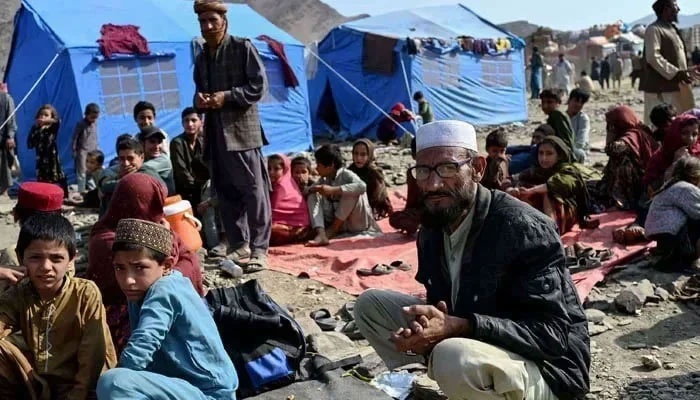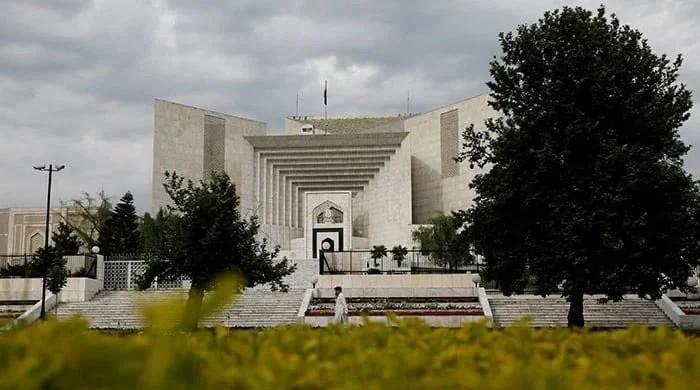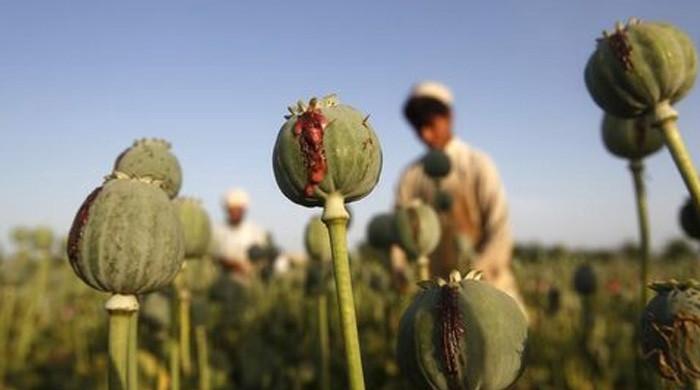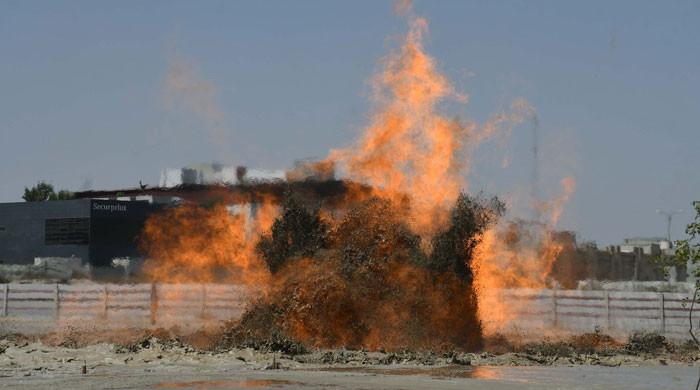FIA constitutes eight teams for repatriation of Afghan refugees
Over 4,100 undocumented migrants deported from Punjab; more than 5,950 shifted to holding centres
April 07, 2025

- 46 holding centres established across Punjab.
- 1,839 people still present at these holding centres.
- FIA teams formed for Lahore, Sheikhupura, other cities.
LAHORE: The Federal Investigation Agency (FIA) has constituted eight teams for the repatriation of Afghan refugees in Punjab with five teams designated for Lahore and three for Sheikhupura, Nankana and Kasur, the investigation agency's spokesperson said on Monday.
The Lahore team will be led by Assistant Director Sajid Amin, Imran Bhatti and Babar Shaharyar will head the Sheikhupura and Nankana Sahib teams, whereas the one for Kasur will be led by Assistant Director Immigration Rana Bilal.
The spokesperson further added that Afghan citizens will be kept in shelters in Lahore before being sent to Afghanistan.
The refugees will initially be kept at Thokar Niaz Baig, Railway Station, Data Darbar, Sabzi Mandi, and Lari Adda, he added.
The development comes in the light of the federal government's decision to expel illegal refugees, including Afghan nationals.
The country has been hosting millions of Afghans for around five decades. Hundreds of thousands of them returned to their country in the last few years, but still, over 2.1 million are living in Khyber Pakhtunkhwa (KP) and other provinces.
Sources in the Ministry of States and Frontier Regions (Safron) state that 1.4 million Afghan refugees are legally registered, while 800,000 Afghan nationals hold an "Afghan Citizen Card" (ACC), but their stay is now considered illegal.
Pakistan had set March 31 as the deadline for all the illegal Afghans, as well as those who possess ACC cards, to return to their country amid rising incidents of terrorism in Pakistan.
So far, at least 4,111 aliens — people living illegally — have been deported from Punjab with the help of relevant institutions.
According to the Punjab Police spokesperson, more than 5,950 people have been brought to holding centres, of which 1,839 are still there.
A total of 46 such holding centres have been set up across the province, of which five are in Lahore, the spokesperson added.
In a statement, Punjab Inspector General Police (IGP) Usman Anwar has said that all illegal immigrants will be sent back at all costs.
Underscoring that human rights principles and values were being duly adhered to during the repatriation process, the provincial IGP directed the CCPOs, RPOs and DPOs to expedite the process and ensure necessary mapping, scanning, and screening.
Categories of Afghan refugees
As per government claims, the total number of Afghan refugees in Pakistan is three million, all of whom are set to be repatriated this year under the illegal foreign nationals' deportation plan.
Afghan nationals residing in Pakistan for decades fall into four categories, which are as follows;
The first category consists of Afghan citizens who fled to Pakistan due to instability in Afghanistan and were granted official refugee status. In 2007, Pakistan issued Proof of Registration (PoR) Cards to these refugees, who now number around 1.3 million. The government issued these cards only once, renewing them periodically, with the current validity expiring on June 30, 2025.
The second category includes Afghan nationals who were issued Afghan Citizen Cards (ACC). Approximately 800,000 individuals received these cards in 2016, and they are now being repatriated as part of government deportation efforts.
The third category comprises Afghan nationals who fled to Pakistan after the Taliban takeover in 2021. These individuals were granted asylum under international protocols. While the Pakistani government initially claimed that 600,000 Afghans arrived after the US withdrawal, the United Nations High Commissioner for Refugees (UNHCR) states that only 200,000 were officially registered.
The fourth category includes undocumented Afghan nationals who lack both PoR and ACC status and are not registered as asylum seekers from the 2021 influx.
This category also includes those who have married in Pakistan and obtained fake national identity cards. Over the past two years, the National Database and Registration Authority (Nadra) has been cancelling such fraudulent IDs through its National Verification and Renewal Drive, now classifying these individuals as illegal residents.











